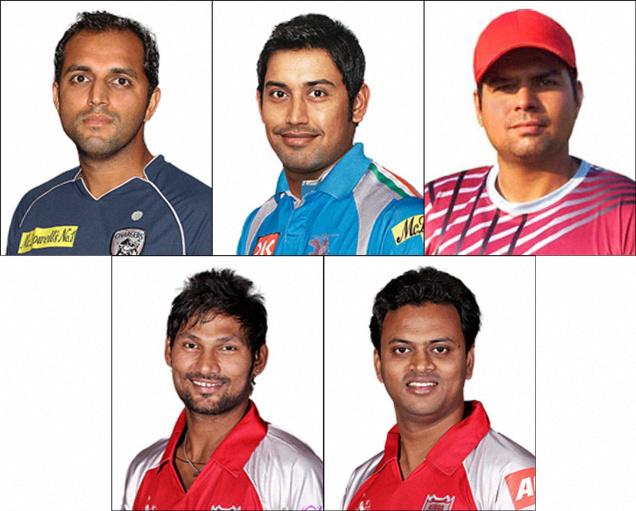
Mumbai, June 30: Cracking the whip on cricketers caught in a IPL spot-fixing scandal, the BCCI on Saturday imposed a life ban on pacer T P Sudhindra but handed lighter punishments to four other domestic players who were also exposed in the TV sting operation.
The decision to ban the players for varying degrees was taken by the BCCI’s disciplinary committee, headed by its president N Srinivasan, which met here to discuss the report submitted by Ravi Sawani on the matter.
While the 28-year-old Sudhindra was the worst hit as his career seems all but over, Shalabh Srivastav was banned for five years. Mohnish Mishra, Amit Yadav and Abhinav Bali were banned for a year each, according to BCCI sources.
The television sting operation had claimed that they agreed to shadowy deals in the Indian Premier League and other matches.
Three of the five players -- Sudhindra, Mishra and Bali -- attended the meeting today to present their points of view before the panel whose other members are Board vice-presidents Arun Jaitely and Niranjan Shah.
Five uncapped Indian cricketers were alleged to have been caught indulging in corrupt practices, including spot-fixing, by a TV channel which conducted a sting operation during this year’s IPL.
BCCI had asked its Anti-Corruption Unit chief Ravi Sawani to conduct a probe in the matter and he submitted his report to Mr Srinivasan a few weeks back.





Comments
Add new comment